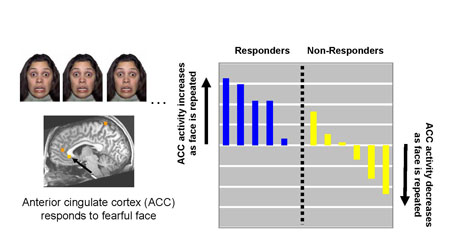 Why be miserable? OK, so it’s January and you’re feeling fat and broke after the excesses of the holiday season, but there’s really no need. Misery is inconvenient, unpleasant, and in a society where personal happiness is prized above all else, there is little tolerance for wallowing in despair. Especially now we’ve got drugs for it. Jessica Marshall questions whether sadness is a crucial part of being human and whether we should embrace our miserable side.
Why be miserable? OK, so it’s January and you’re feeling fat and broke after the excesses of the holiday season, but there’s really no need. Misery is inconvenient, unpleasant, and in a society where personal happiness is prized above all else, there is little tolerance for wallowing in despair. Especially now we’ve got drugs for it. Jessica Marshall questions whether sadness is a crucial part of being human and whether we should embrace our miserable side.
Link to read this article
Source: New Scientist
anti-depressants
Electromagnetic Biomarker Could Minimize Trial-and-Error Prescribing

The degree of increased activity in a mood regulating hub called the anterior cingulate (arrow) in response to flashing frightful faces predicted a patients
 Images of the brain’s fastest signals reveal an electromagnetic marker that predicts a patient’s response to a fast-acting antidepressant, researchers have discovered.
“Such biomarkers that identify who will benefit from a new class of antidepressants could someday minimize trial-and-error prescribing and speed delivery of care for what can be a life-threatening illness,” said Carlos Zarate, M.D., of the National Institute of Mental Health (NIMH), Mood and Anxiety Disorders Program. [continue reading…]
People taking prescription antidepressants appear to drive worse than people who aren’t taking such drugs, and depressed people on antidepressants have even more trouble concentrating and reacting behind the wheel.
These were the conclusions of a study released Sunday at the Annual Convention of the American Psychological Association. [continue reading…]
Psychiatrists have cautioned against the use of antidepressants alone in people with bipolar disorders,
saying they could worsen a patient’s condition by causing a destabilisation in mood.
Dr Ajeet Singh and Professor Michael Berk, consultant psychiatrists from the University of Melbourne,
state in the current edition of Australian Prescriber that the goal of treatment in bipolar disorder is to
stabilise mood, and antidepressants may defeat this purpose if they are not taken with other drugs.
“Patients may need an antidepressant, but this must be taken with a mood-stabilising drug.
Antidepressants place patients at risk of switching to elevated phases of the disorder and rapid cycling
patterns,” they say in the article. [continue reading…]
